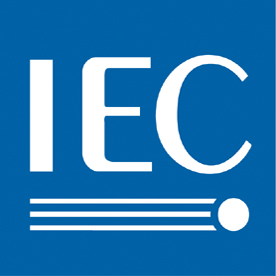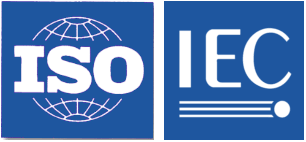IEC 63339 ED1Unified reference model for smart manufacturing
Under development

Under development

IEC 62443-2-1:2010 defines the elements necessary to establish a cyber security management system (CSMS) for industrial automation and control systems (IACS) and provides guidance on how to develop those elements. This standard uses the broad definition and scope of what constitutes an IACS described in IEC/TS 62443-1-1. The elements of a CSMS described in this standard are mostly policy, procedure, practice and personnel related, describing what shall or should be included in the final CSMS for the organization. This bilingual version (2012-04) corresponds to the monolingual English version, published in 2010-11.

IEC TR 63283-1:2022(E) is to compile a comprehensive collection of base terminology with compatible terms that can become relevant within the scope of Smart Manufacturing. Most of these terms refer to existing definitions in the domain of industrial-process measurement, control and automation and its various subdomains. When multiple similar definitions exist for the exact same term in different standards, this document contains only the preferred definition in the context of Smart Manufacturing. Whenever the existing definitions are not compatible with other terms in this document or when the definition does not fit into the broader scope of Smart Manufacturing, new or modified definitions are given.

IEC 62832-1:2020 defines the general principles of the Digital Factory framework (DF framework), which is a set of model elements (DF reference model) and rules for modelling production systems. This DF framework defines: a) model of production system assets; b) a model of relationships between different production system assets; c) the flow of information about production system assets. d) The DF framework does not cover representation of building construction, input resources (such as raw production material, assembly parts), consumables, work pieces in process, nor end products.. e) It applies to the three types of production processes (continuous control, batch control, and discrete control) in any industrial sector (for example aeronautic industries, automotive, chemicals, wood).

ISO/IEC TR 22417:2017(E) This technical report identifies IoT scenarios and use cases based on real-world applications and requirements. The use cases provide a practical context for considerations on interoperability and standards based on user experience. They also clarify where existing standards can be applied and highlight where standardization work is needed.

ISO/IEC TR 30164:2020 describes the common concepts, terminologies, characteristics, use cases and technologies (including data management, coordination, processing, network functionality, heterogeneous computing, security, hardware/software optimization) of edge computing for IoT systems applications. This document is also meant to assist in the identification of potential areas for standardization in edge computing for IoT.

ISO/IEC TR 30164:2020 describes the common concepts, terminologies, characteristics, use cases and technologies (including data management, coordination, processing, network functionality, heterogeneous computing, security, hardware/software optimization) of edge computing for IoT systems applications. This document is also meant to assist in the identification of potential areas for standardization in edge computing for IoT.

This document provides system life cycle processes to implement and maintain trustworthiness in an IoT system or service by applying and supplementing ISO/IEC/IEEE 15288:2015. The system life cycle processes are applicable to IoT systems and services common to a wide range of application areas.

This document defines a structured description method, which describes the functionalities of IoT devices, including what functionalities an IoT device can provide, and how to use the functionalities of IoT device. In details, the contents: 1. Define concept of IoT Device Model: what is IoT Device Model, and how it works with underlying IoT communication protocols; 2. Specify structure of IoT Device Model: define the elements of Status, Profile, and Resource; Furthermore, specify the structure of Resource element, to describe the functionalities of IoT devices through Property, Service, and Event; 3. Specify construction method of IoT Device Model: how to build IoT device functionalities based on IoT Device Model; 4. Describe the device interoperability based on the IoT Device Model: IoT Device Model discovery, remote query, remote controlling, subscription and data uploading.

This document provides a collection of representative use cases of Digital Twin applications in a variety of domains.

The document defines a conceptual model for the building of use cases; specifies a use case template ontology, i.e. vocabulary as well as conventions for describing and representing use case contents; provides guidance on building use case templates and on extending a use case ontology to cover the targeted standard; provides examples of use case templates and use cases; and specifies an implementation scheme that will allow use cases to be stored and shared in a repository.

This document provides an overview of Digital Twin, describes the capabilities, range, characteristics and requirements, and establishes a well-defined conceptual model, reference model and reference architectural views including usage view, functional view, and network view. This document is applicable to all types of organizations (e.g., commercial enterprises, government agencies, not-for-profit organizations).
